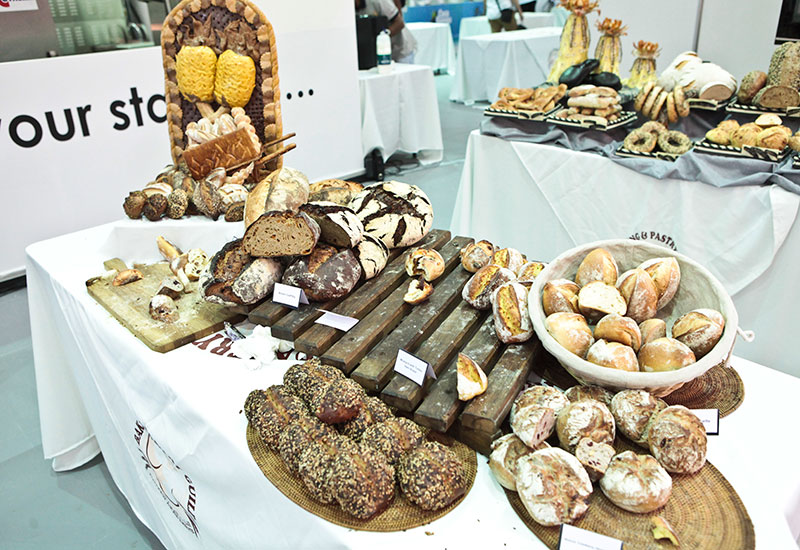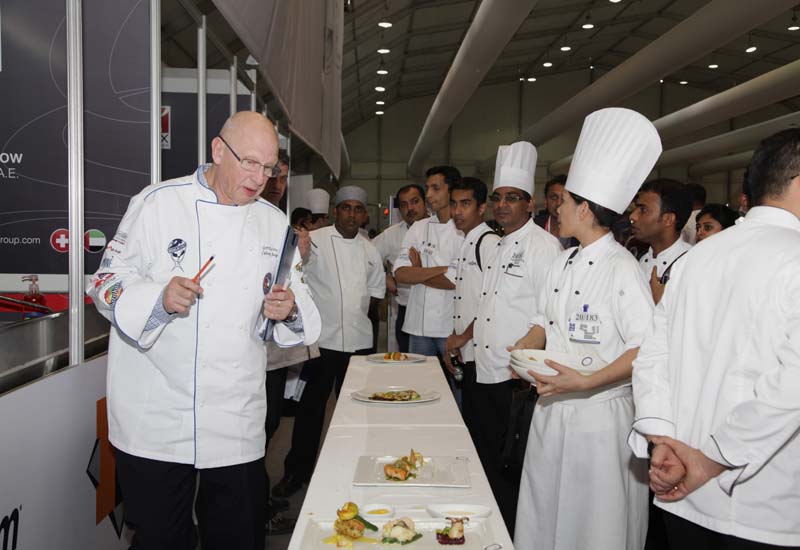Snowdonia Cheese Company commercial director Richard Newton-Jones said: “GCC is a key market for us, based on the speciality cheese consumption. We want our range of six flavoured cheese to be listed in all the reputable retail stores in UAE.
“It has great application for in-flight catering and a lot of hotels, like Westin Hotels, are very interested in the product. We will be working with a local partner here to work on the marketing strategies for the region.”
Additionally, suppliers from Wales believe that adapting to local culture and traditions is the key to success in the region.
Burts Biscuits and Cakes, one of the Welsh exhibitors, confirmed that GCC is its second biggest market outside the North America, contributing 17% to the company’s total turnover, and credits localising products for its acceptability and reach in the market.

| Advertisement |
Burts managing director Edward Burt commented: “We have certain items we use for Christmas, and there are areas within this region, like Kuwait for example, where we refrain from using the word Christmas. We generalise the products and are sensitive to the culture.”
The Welsh pavilion also comprised meat producers who aim to enter the foodservice industry in the region; however, their entrance is marred by cheap meat alternatives, according to the exhibitors.
Randall Parker Foods revealed that its exports to GCC make about 1% of its total exports currently, and they airfreight two tonnes of meat, thrice a week, to UAE.
“The challenge for us in this region is the cheaper lamb from Australia and New Zealand, because it’s pretty much a commodity product and it arrives via sea freight in containers. Also, the locally produced lamb and the lamb that comes from Pakistan and India is also competition. It’s a lot cheaper. Ours is airfreighted as it’s a premium product,” said Randall Parker Foods senior sales manager Graham Penny.
However, he added that Welsh meat producers are still hopeful. “I think price would be less of an issue now that the recession is over. And you have top entrepreneurs and businesses coming back to Dubai, so price would become less of an issue. They would go back looking for quality, and that’s where Welsh lamb would be found.”
South American countries also heavily showed their clout at the show. The organisation which promotes Brazilian products around the world is looking to help the country diversify its offer to the Middle East well beyond meat.
The Brazilian Trade and Investment Promotion Agency (Apex-Brasil) was among the biggest exhibitors at Gulfood 2015. Speaking to Caterer Middle East, Ely Michel Dauly, COO for Apex-Brasil’s MENA office, explained how diversification would play an important role in building on the US $650 million in deals signed at last year’s event. “Brazil is the leading exporter of meat, beef and poultry,” he said.
“This is one of our goals, to diversify. That’s why we have 72 companies, offering different products: juices, milk products, biscuits, honey. There are many products to offer. This is our challenge — to improve the level of information about Brazil.
“Also there are direct flights to Dubai and Abu Dhabi, so now we feel the awareness is much better. But we still have to work on it.” He added that Brazilan suppliers were seeing increased demand from the region, particularly in the UAE, Saudi Arabia and other GCC countries.
Article continues on next page ...










 Search our database of more than 2,700 industry companies
Search our database of more than 2,700 industry companies









